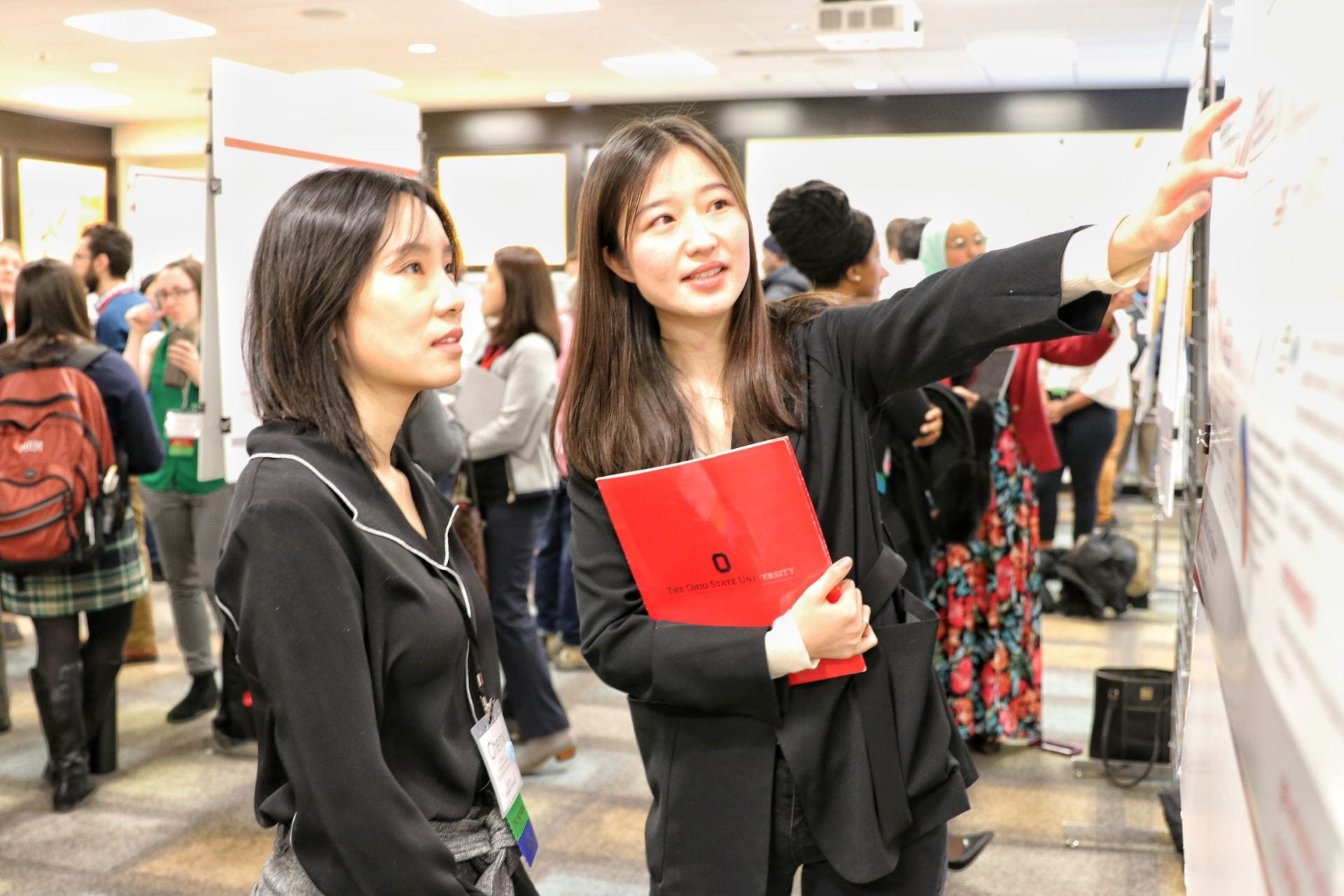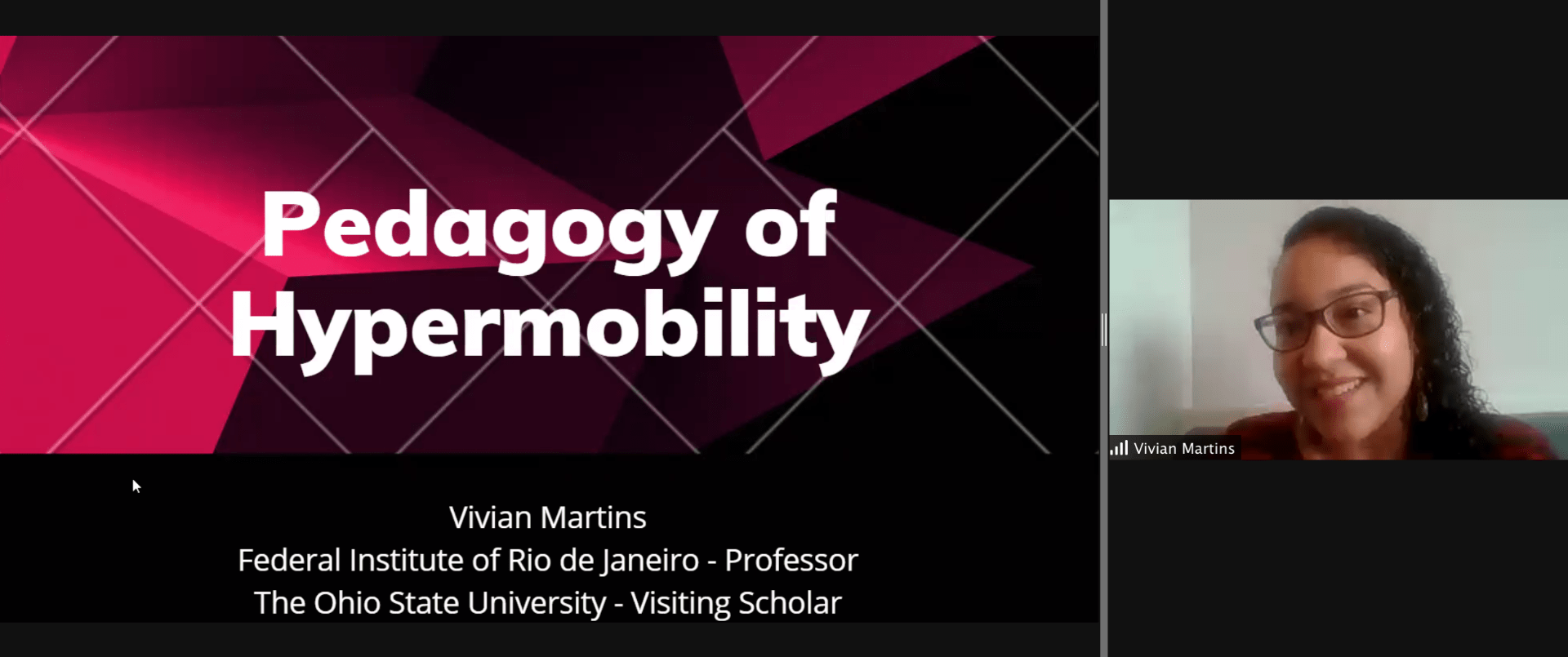By Fan XU (xu.3849@osu.edu) and Chenxi Liu (liu.8184@osu.edu)
Fan Xu and Chenxi Liu are Ohio State’s Ph.D. students in the Learning Technologies program. In the paragraphs below, they describe their unexpected feelings about the first year of their Ph.D. program as international students and their different expectations for the upcoming academic year in the midst of the COVID-19 pandemic.
“We’re the lucky ones but not everyone is so lucky during the pandemic,” says Fan Xu
When the coronavirus outbreak got started, I was enjoying the spring break of my first year of doctoral studies in Learning Technologies at The Ohio State University. My boyfriend and I decided to stay at home spending the three-day break rather than setting out a short trip. Obviously, it was a terrible idea but I had assumed I would be able to go for a better trip at the end of the semester.
All classes were moved online when we went back from the break. My school made a very quick and wise reaction, which I realized much later as the number of confirmed cases increased crazily. The first few weeks of quarantine was not that bad because I had no time to feel bad. Time was spent to get used to establish a new normal: to prepare myself for classes via the camera on my laptop; and to set a Skype account to communicate with my advisor, Dr. Correia, and colleagues for my research assistant job. Many personal issues such as taking the driver’s license exam, going to doctor’s appointments, etc. had to be canceled or suspended.
As the situation in the U.S. had no sign of getting better while the anti-epidemic actions in China made some improvements, many of my friends who are also international students chose to go back to their families in their home countries. This was the time that I began to feel overwhelming loneliness. Working from home became harder than I expected. I struggled with pulling myself together from anxious and unmotivated emotions again and again. The only thing that stopped me from flying back to my family was the danger of contamination with COVID-19 in a crowded airport and narrow airplane.
However, in the long run, that was a wise decision. At the beginning of July, the return to U.S. higher education institutions has been thrown into question for countless international students after a directive by the Trump administration that students whose classes were moving entirely online for the fall would be stripped of their visas and required to leave the United States. Those who were still in the U.S., including myself, would face the possibility that they might be sent to their home countries if they did not have face-to-face or hybrid courses, which were not offered by most schools for safety reasons. This situation made me feel disappointed about this country like never before and it was my first time having the feeling that I may not be able to finish my education here. It seemed that the only thing we could do was wait for the university’s response. This time of waiting made me understand what “leading lives of quiet desperation” in Thoreau’s words means.
Luckily, as a result of the efforts made by many universities, the Trump administration rescinded this policy. We witnessed Ohio State fighting against the outrageous policy for its students, in particular for the international students. Every week we received emails from the Department of Educational Studies and the College of Education and Human Ecology with COVID-19 updates, reminders of important issues, and support for students regarding both distance learning options and student life. Besides the mental and moral support, the emergency funding provided by Ohio State assisted us with unexpected expenses as a result of COVID-19. More importantly, my advisor has kept in close contact with me through virtual meetings or emails and our research groupmates often sent messages to check on each other. As we, international students, are far away from our home, families, and friends, the kindness and care from people around us during the quarantine was crucial to tide us over.

Chenxi and Fan at the Learning & Experience Design research group kick-off meeting of the Autumn 2020 semester.
“We’ll move forward firmly and hope we can inspire more international students like us,” says Chenxi Liu
Although this global pandemic brought some challenges for the first summer of my doctoral journey in the U.S., with the support from my advisor, professors, and school staff, I was lucky enough to keep things going and see how Learning Technologies can contribute to today’s education.
Under the mentorship of Dr. Correia, we examined four popular video conferencing systems for e-learning as part of Fan and my summer research assistantship. With the purposes of education in mind, we provided guidance on selecting video conferencing systems and made recommendations for systems improvement. The rewarding experience of conducting a research project in a short period of time and with an awesome team is something that is going to stay with me for a long time. During the summer and to strengthen my understanding of the K-12 online teaching landscape in the U.S., I took a K-12 online teaching course taught by Dr. Tracey Stuckey-Mickell and addressed current problems related to online teaching and learning. Moreover, I was notified that our proposals were accepted by the 2020 Association for Educational Communications and Technology Virtual Conference. I am honored to be able to make contributes to online education, especially during the pandemic, in which many schools are transforming face-to-face classes into online and virtual classes.
Although this summer, I’ve encountered some uncertainties and challenges when planning for the coming fall semester due to repeated changes of the SEVP guidance issued by Immigration and Customs Enforcement, with the support of our advisor, professors, colleagues, department, college, and university, we were ready to face the upcoming fall semester of 2020.
In summary
Because the pandemic is not over yet, Fan and Chenxi believe that many students choose to take online classes in the upcoming semester just like them. As international doctoral students, these are their thoughts on successfully completing their studies and conducting research in a time of the pandemic.
- Due to their special status, international students should pay close attention to any changes to policies that impact them and follow the information released by the Office of International Students and Scholars and other university-related offices.
- When you need help, don’t be afraid to ask questions and set up online meetings with your advisor, professors, and peers. They are your support system and are there to help you.
- When designing a research project, consider the possibility of switching from in-person study to remote study.
- Use your time to learn technology tools that can be used to support remote data collection & analysis as well as research conceptualization.
- Relax, maintain regular exercise, and keep in contact with your friends and family.

Fan Xu and Chenxi at the 2020 Ohio State’s College of Education and Human Ecology Student Research Forum (February 2020).













